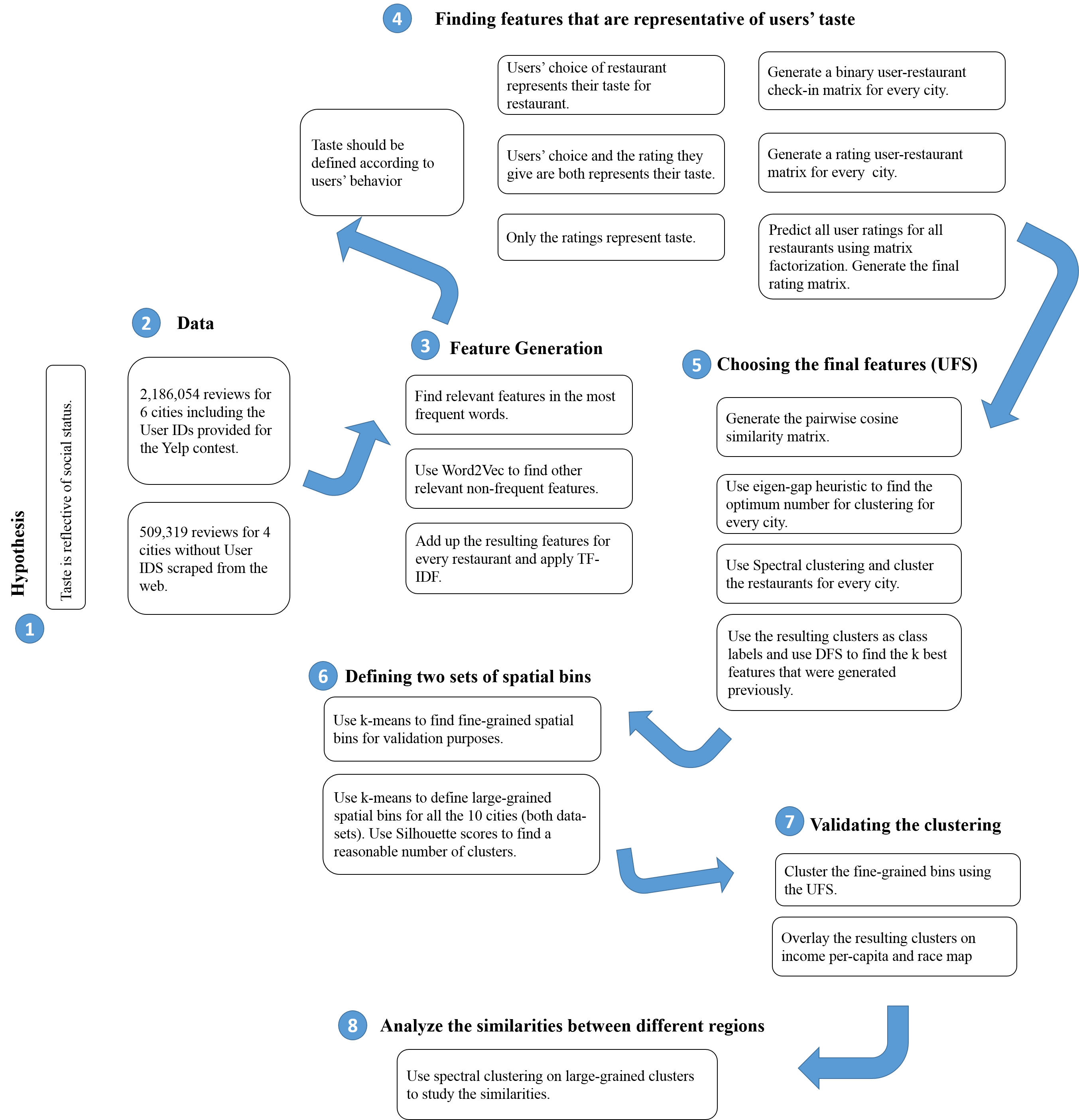This study aims to put forth a new method to study the socio-spatial boundaries by using georeferenced community-authored reviews for restaurants. In this study, we show that food choice, drink choice, and restaurant ambience can be good indicators of socio-economic status of the ambient population in different neighborhoods. To this end, we use Yelp user reviews to distinguish different neighborhoods in terms of their food purchases and identify resultant boundaries in 10 North American metropolitan areas. This data-set includes restaurant reviews as well as a limited number of user check-ins and rating in those cities. We use Natural Language Processing (NLP) techniques to select a set of potential features pertaining to food, drink and ambience from Yelp user comments for each geolocated restaurant. We then select those features which determine one’s choice of restaurant and the rating that he/she provides for that restaurant. After identifying these features, we identify neighborhoods where similar taste is practiced. We show that neighborhoods identified through our method show statistically significant differences based on demographic factors such as income, racial composition, and education. We suggest that this method helps urban planners to understand the social dynamics of contemporary cities in absence of information on service-oriented cultural characteristics of urban communities.

